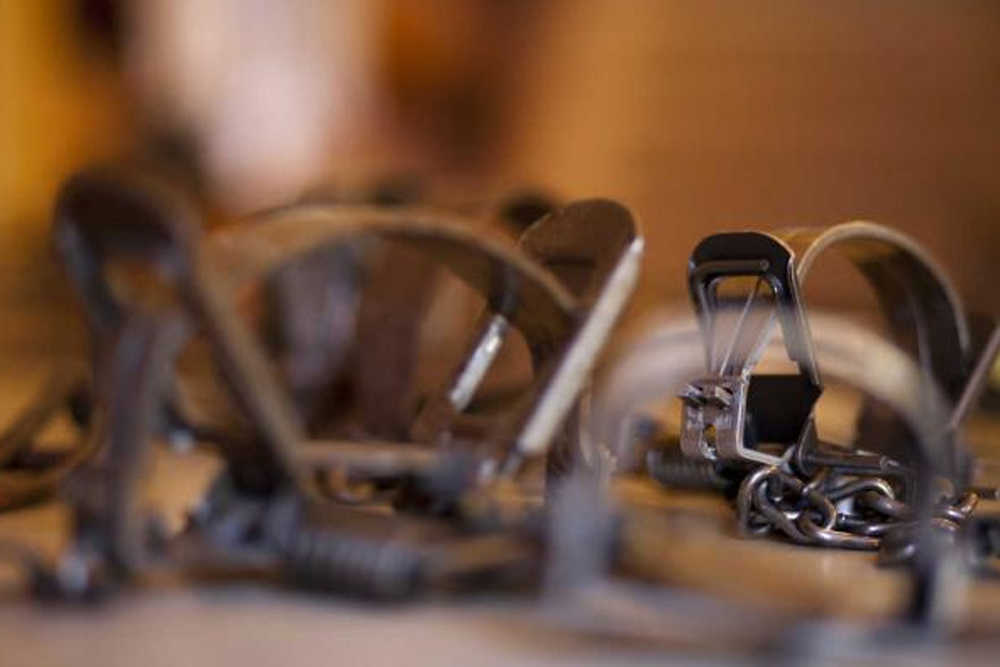After facing a series of restrictions that could have virtually eliminated trapping in certain areas of the central Kenai Peninsula, trappers were told by the Alaska Board of Game to trap responsibly, but freely.
On Wednesday, board members briefly discussed the proposals — which would have restricted trapping near trails and campgrounds in Cooper Landing, Seward and Moose Pass — before voting them down unanimously.
While supporters of the proposal testified that trapping near trails was a threat to children, dogs and others on the trail, Alaska Department of Fish and Game Area Management Biologist Jeff Selinger said his office does not often hear about accidents with traps.
“Historically there have been user conflicts in this area with local residents and trappers and pets getting caught in traps,” he said. “It’s an issue that’s talked about a lot, but the reality is that we do not hear about a lot of animals getting caught in traps directly and the department level.”
Several board members said that though they were dog owners, they could not support the restrictions to trapping that did not also place an onus on dog owners to be responsible with their pets.
“The trappers do have some rights on their part,” said Board Chairman Ted Spraker, who traps on some areas of the Kenai Peninsula. “We hear the same thing in the (Mat-Su Valley) where there have been some problems … the people with dogs, some of them very vociferously think that there should be no containment of their dogs.”
The Cooper Landing based group that submitted the proposals, the Committee for Safe Public Lands and Trails, testified to board members that it was primarily interested in developing a working relationship with the Alaska Trappers Association.
Board members chided the group for failing to come to an agreement with the trappers before approaching the board with a regulatory proposal.
During public testimony Ken Green, who spoke for the committee, told board members that he had been unable to get the trapper’s association to cooperate in negotiations after he refused to withdraw his proposal from the Board of Game agenda.
In February, Green said, the trapper’s association posted several signs in Cooper Landing. The signs caution trappers to avoid conflict by not trapping near trails, turnouts and other populated areas. The signs also caution pet owners to be responsible for their pets and avoid going off-leash.
Alaska Trappers Association President Randall Zarnke disagreed with Green’s characterization of the negotiations and said the signs were an effort to resolve the issue without regulatory involvement.
“I was disappointed … to see what I saw was a good faith effort by the trapping community to find a way to compromise and work with people, really seemed to end in an impasse,” said vice-chairman Nate Turner, who traps near Nenana. “I think this could have been resolved at a more local level and that’s something that we always encourage.”
Both Spraker and Turner cited other places in the state near Juneau and in Fairbanks, when trappers and recreational users came to agreements about trail use without going through the regulatory process.
“This is an important issue to the authors,” Turner said. “I would just encourage them to continue to take the hand that’s been offered and … find some ways to resolve local concerns.”
Reach Rashah McChesney at rashah.mcchesney@peninsulaclarion.com or follow her on Twitter @litmuslens.

